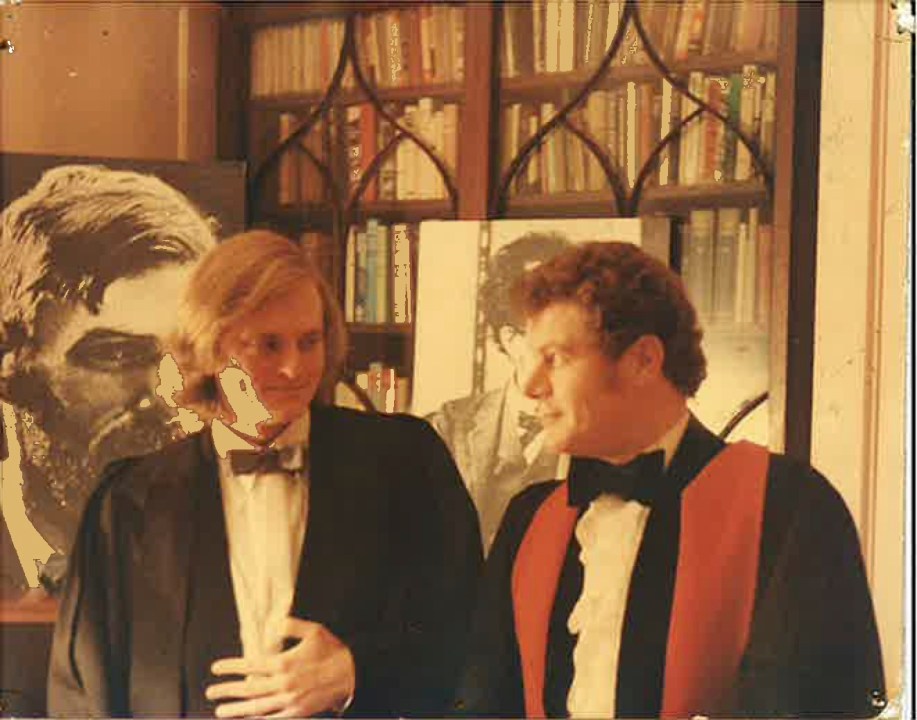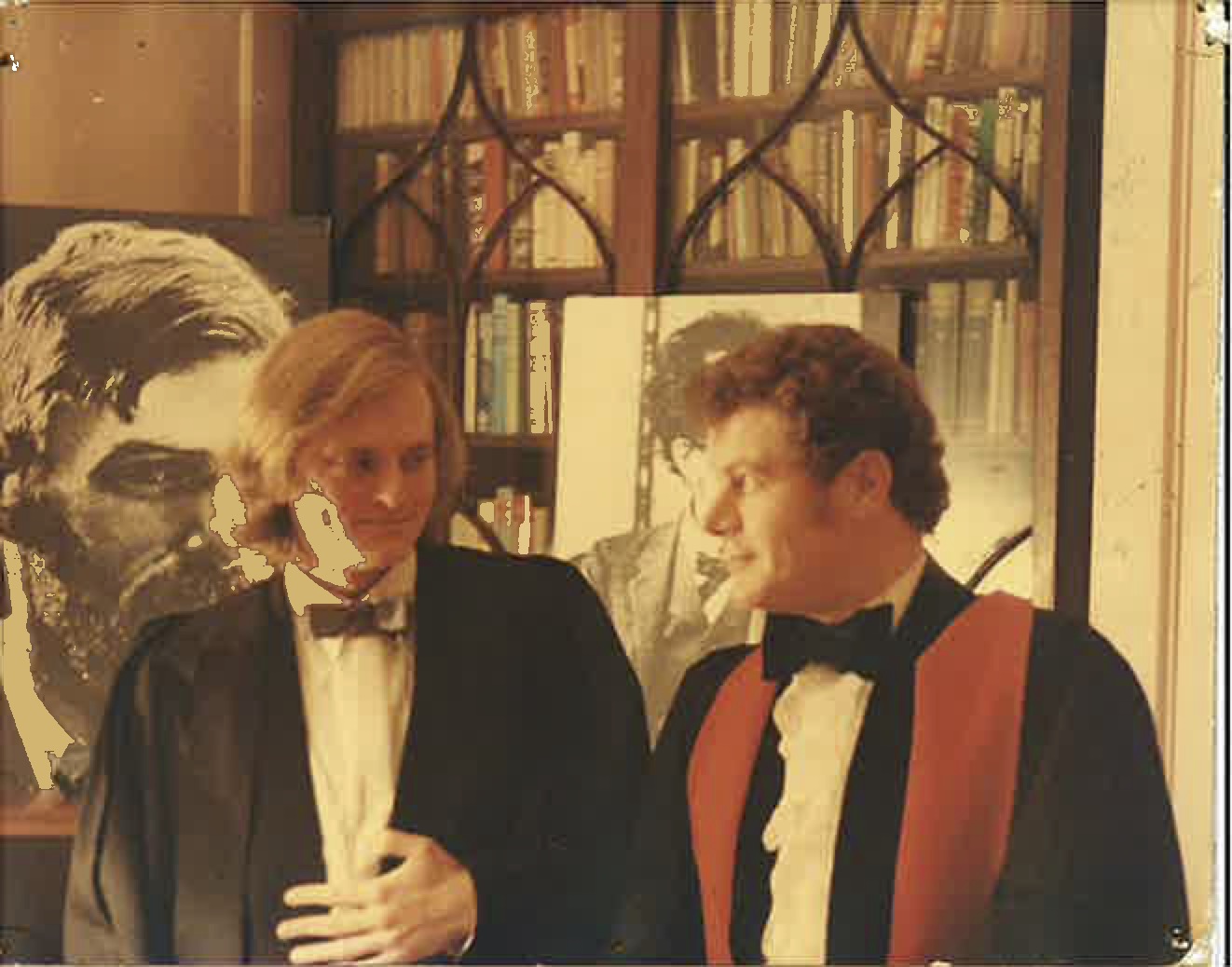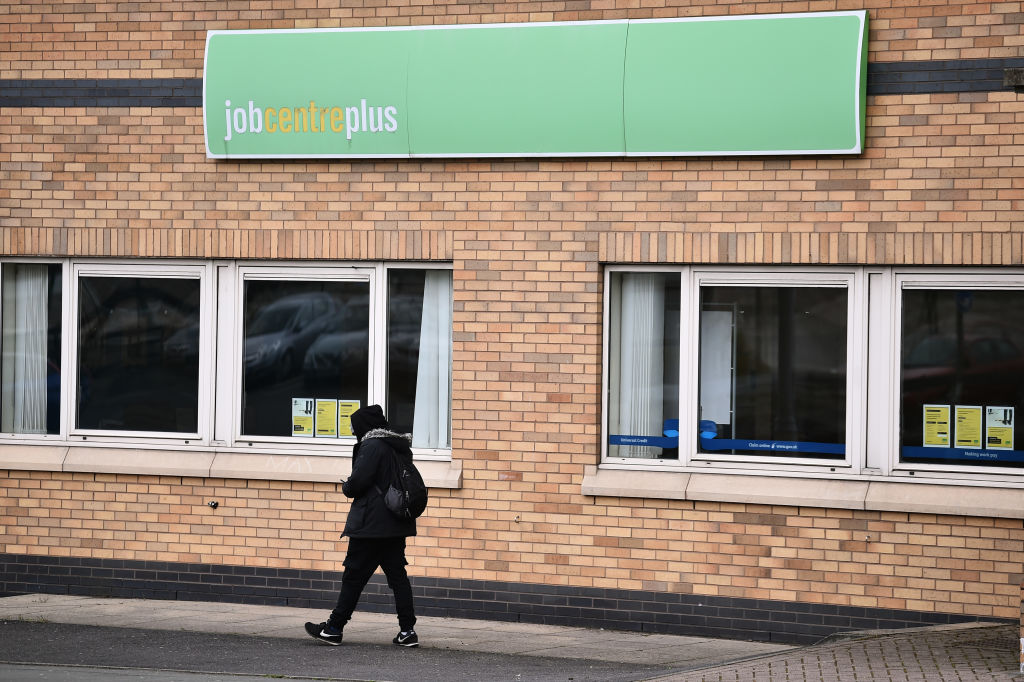I came up to Corpus Christi College, Cambridge, on a rain-sodden October evening in 1976. I’d flown from spring sunshine in South Africa to this misery – the weather having turned abysmal after the best summer of the century, just as one would expect. I didn’t know what a Cambridge porter was meant to do as I plonked down my bags at the lodge, anticipating assistance. The porter, a stocky, tough military type, hardly gave me a glance, saying ‘Pick ’em up and follow me’. This, I was soon to find out, was the legendary Jaggard, the porter with the most fearsome reputation in the university, upon whom Tom Sharpe’s Skullion in Porterhouse Blue was based. As I heaved my bags across the dark and dismal New Court, up two flights of cold stone stairs, I resolved to leave as soon as I could get a flight home.
But then everything changed. I was told by the senior tutor the next morning to present myself to Dr Tanner in his rooms, P1 in the Old Court. ‘But not too early,’ he said. ‘Dr Tanner is not a morning person’.
I climbed the stairs and knocked on the stout oak door in the oldest court in Cambridge. There was a heady aroma on the landing and the pounding of loud classical music inside. I knocked again but nobody came to the door. So I pushed it open and was confronted by a chaotic room strewn with books to waist height, the air heavy with perfumed smoke, Aramis aftershave, and fresh coffee. One could just make out a grand piano and a desk piled with books and photographs. There was a wall of shelving with hundreds and hundreds of LPs, and further heaps of records scattered over the surviving floor space. Large reel-to-reel tapes turned slowly, recording the music. Balanced on top of the debris, precariously, were large mounted close-up portrait photographs of nobody I recognised. I was to learn that they were Wagner, D.H. Lawrence, Mahler, Maria Callas and Wilhelm Furtwängler. The only hero who was missing was Nietzsche.
It took a moment to make out a figure tucked close to the windows with a telephone to his ear. He looked up with a frown of irritation and then a sudden radiant smile as he waved me in with one hand, rotating the other in a gesture of boredom at the conversation he was having, arching and flickering his eyebrows in a way that would become characteristic. Michael spoke with facial gestures – particularly with his eyebrows – just as the Italians speak with their hands.
I saw he had chiselled lines on his face, dishevelled red hair (‘not red – autumn brown’), and was wearing a leather jacket, open-necked shirt, and tight pigskin trousers. He puffed at a scented cigarette between shouting above the music into the phone. It was not at all the image I had expected of a Cambridge don, but I had the immediate sensation that I knew who he was: Butley, the charismatically dissolute lecturer in Simon Gray’s play (I had recently seen, and loved, the film version with Alan Bates).
‘Yes,’ Michael said at some later point with a dismissive wave of his hand, ‘so I’ve been told. I did lodge with Gray, but as for the resemblance – never been so insulted.’
And so a close relationship began – one that aspired to Wagner’s attitude towards music.
Michael believed in university education in the way that Wagner – his hero above all the other heroes whose photographs adorned his room – believed in music: as the total work of art. It was all or nothing, and Michael, I think it fair to say, saw his role in almost messianic terms. The relationship between pupil (his word) – at least those he singled out – and teacher was all-consuming, and committed to moral and aesthetic seriousness.
He was a moral philosopher, doubling as a fellow in English, but his interests were in aesthetics, then hardly known in Cambridge. His particular passion was for music, and composers were ranked in a strict hierarchy. It had taken him some considerable time, he would say, to be able to take even Mozart seriously, never mind the more frivolous bel canto composers which he had also come to love, so far were they below the rigorous standard set by Wagner, the master. His ability to make room for the lesser composers was largely on account of Maria Callas whose voice was for him the sublime expression of the sensual rapture he craved.
Michael believed, and believed passionately, in the power of art to measure, illuminate and transform life. He was proud to point out that his doctoral thesis – of which he gave me his original copy – opened with the words ‘I believe’. He was an educational proselytizer, and a most charismatic one, in a sense that I don’t think exists any more in universities, and it was perhaps only in the open and permissive period of the Seventies in which it could flourish.
Michael expressed his views trenchantly. There was a world according to Michael or there was nothing. He was an iconoclast and revelled in mocking and undermining most authority and convention, particularly that of the university. He would regale his acolytes – that is what we were – with outrageous and scurrilous anecdotes about colleagues and prominent university figures. His mode was irony, which ranged from the mischievous to the sardonic. We could never quite face, or take seriously, members of the college after Michael’s excoriating hatchet jobs.
He identified closely with F.R. Leavis and his ‘open-shirted’ morality – the only university figure he genuinely admired – in regarding education as a strenuous moral mission, akin to warfare, which was concerned with ‘life’ (in Leavis’s sense). Michael was an avowed atheist but his educational manifesto was propelled by a religiose-like fervour. He, like Leavis, saw himself as a prophet without honour: ‘Cambridge in spite of Cambridge’, as Leavis put it. And he saw himself as the bearer of the Leavis torch. He told me that Leavis had said to him (and here Michael adopted the penetratingly lugubrious tone of Leavis, which was close to his own voice anyway): ‘Tanner, you’re the one’, accompanied by a riveting stare. Whether that was true or not, it confirmed the image, and the mission, Michael set for himself.
His relations with ‘pupils’ was didactic and sometimes overwhelming. He believed the essential qualities of life were vitality and emotional generosity, both of which infused his style of teaching. He believed in an all-consuming inclusiveness in which his teaching was merely a part, albeit the driving force, of a total relationship. Pupils were drawn into his Weltanschauung (a word he often used) and became acolytes. It was a dizzying experience because once drawn in and flattered with the intense attention bestowed by Michael it was hard to be without it. He was adept at discarding those he became bored with or who in some way offended (or deviated from) his strict principles. It was thus that a kind of Russian roulette was played, with a pupil being a favourite one moment and banished to the wilderness the next. It was game which is no longer able to be played but it was inspirational to be a part of it. One was the music while the music lasted.
In recalling those years, I think about how very different university was in the Seventies, and especially so Cambridge in that milieu, and how profoundly the relationship between lecturer and student has changed. In these dismal times, fraught with fragilities, it would be impossible for somebody like Michael to survive, and impossible for a student to experience such extraordinary inspiration. The upshot is a considerable impoverishment on both sides.
A celebration of the life of Michael Tanner will be held on 26 April, 2 p.m., at Leckhampton, Corpus Christi College, Cambridge. All are welcome.








Comments